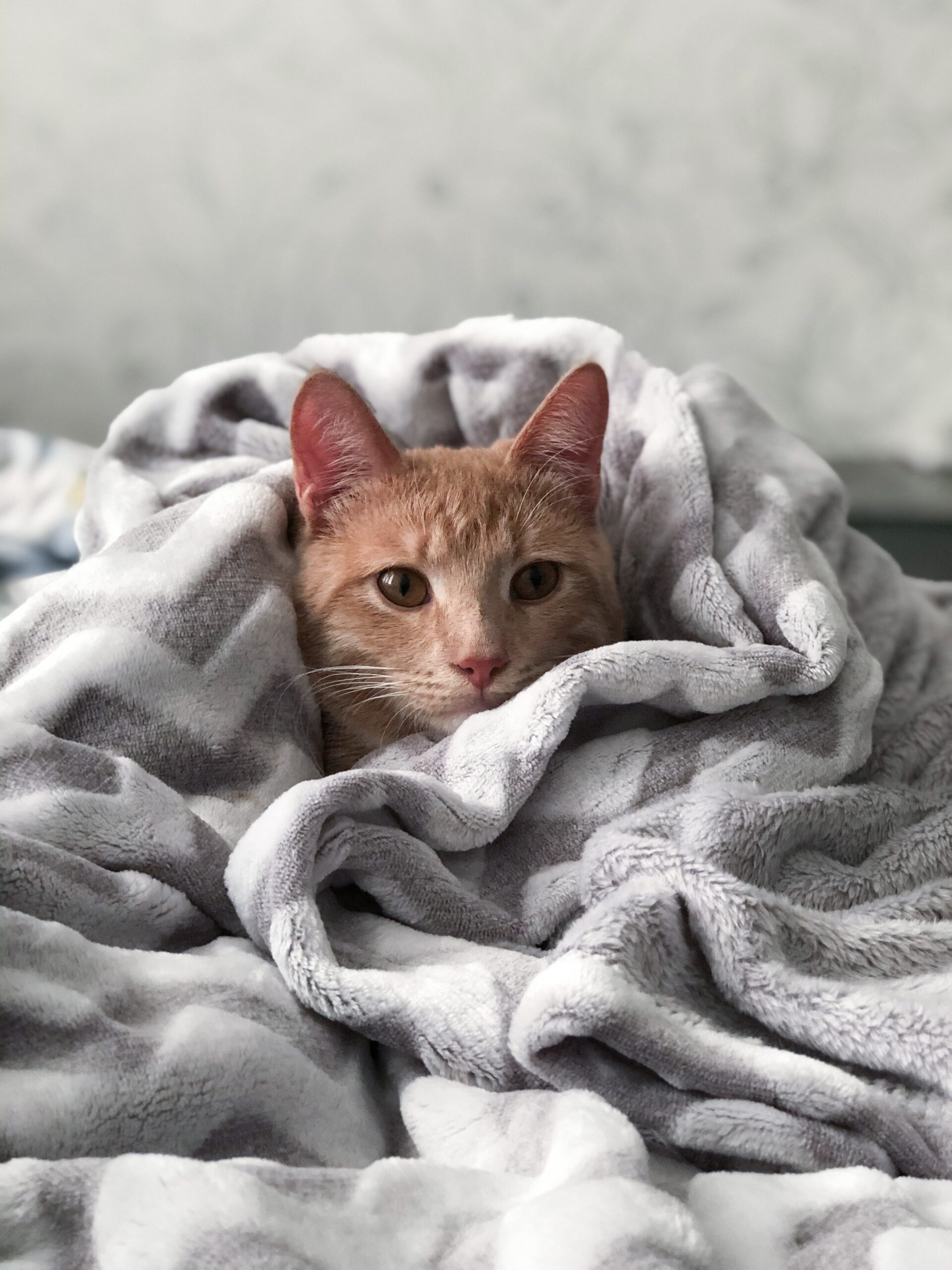It is not always easy to know when a cat is sick and should be taken to the vet. Very few cats like to go to the vet, so cat owners sometimes hesitate whether they really should have their fur nose examined. However, if the following signs appear, don’t waste time and take your cat to the vet as soon as possible.
Cats instinctively try to hide when they’re feeling bad, to avoid showing weakness and making themselves vulnerable. However, what is essential for survival in the wild can make cat owners feel insecure. Do you really have to take the cat to the vet or will it recover on its own? As a general rule, it is better to go to the vet once too often than once too little. This is especially true if you notice any of the following five symptoms in your cat.

1. weight loss and loss of appetite
Noticeable weight loss without diet is always an unmistakable sign that something is wrong with a cat. Cancer and tumours, for example, consume the energy reserves of cats at breakneck speed, causing them to lose weight quickly. An early visit to the vet can save your cat’s life. If the tumour is not yet very large, it can often be removed surgically, so your pet will be lucky to recover.
Also, if your cat has swallowed a foreign body and/or suffers from constipation, this may result in weight loss. As there is a risk of intestinal obstruction, you should take your velvet paw to the vet immediately.
Weight loss may also be a sign of other cat diseases. These include FIP, leucosis, Aujeszky’s disease and diabetes. Tip: Weight loss is associated with, but does not have to be associated with, loss of appetite for some of the above diseases.
However, loss of appetite is not always a sign of illness. If the pelt-nose otherwise appears healthy and lively and does not lose weight, it may eat at the neighbour’s house and is simply already full when it comes back home. Nevertheless, stay alert for further symptoms of the disease.
2. cat is unusually quiet or lethargic
Has your cat been retreating unusually often lately, hiding under the cupboard or sofa and hiding? When cats are so conspicuously quiet and your otherwise trusting cat is afraid to have contact with you, something is wrong with her. Other behavioural changes are also usually signs of illness.
For example, if your otherwise calm and shy pelt-nose is suddenly aggressive or your playful house cat moves slowly and sluggishly, seems lethargic and listless, these are also important warning signs that need to be checked by a vet. If the vet cannot find anything, it may be advisable to get a second opinion.
3. knots and non-healing wounds
If you notice any wounds on your pet that don’t seem to heal on their own, or even get worse, you should take your cat to the vet immediately. This also applies to knots, lumps and swellings that you first notice on your velvet paw. These may be signs of a tumour or something has become inflamed. It is also possible that an underlying disease has weakened the immune system to such an extent that other diseases and centres of inflammation are easy to treat.
Also pay attention to changes on the skin or cat fur. If your cat’s nose scratches frequently, it may be caused by fungus or parasites. A dull, dull and possibly sticky, matted coat can have various causes. Either your cat is in pain and cannot clean itself, or there is a lack of nutrients. Pain and nutrient deficiencies are in turn caused by various diseases.
4. vomiting, diarrhoea and constipation are signs of illness
Any kind of digestive problems in cats should also be clarified with the veterinarian. These include nausea, vomiting, diarrhoea and constipation. The most different illnesses can be behind it, from the above mentioned intestinal obstruction over poisonings up to leucosis or FIP.
5. difficulty breathing or bad breath
Respiratory problems are generally an alarming symptom in cats. They can be caused by a relatively harmless cold, but allergies or feline asthma are also possible causes. It is also possible that a tumour is pressing on the cat’s lungs and makes it difficult to breathe. In any case you should take your cat to the vet immediately if she sneezes, coughs, has difficulty breathing or even gets a blue tongue.
If your cat has bad breath, you should pay attention to the accompanying circumstances. If your cat smells from her mouth only after her food and otherwise appears lively and fit, this is no cause for concern. However, if your cat doesn’t like to eat and her mouth smells bad, the smell may be a sign of toothache. Besides tooth problems, bad breath can also be caused by problems with the stomach or kidneys and diabetes.

